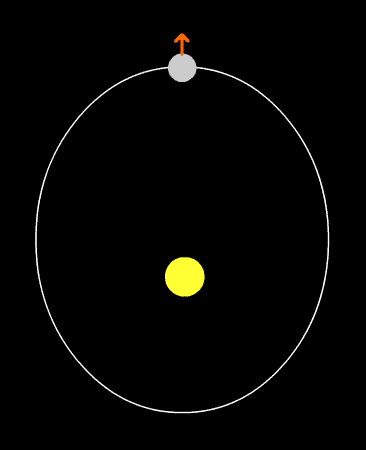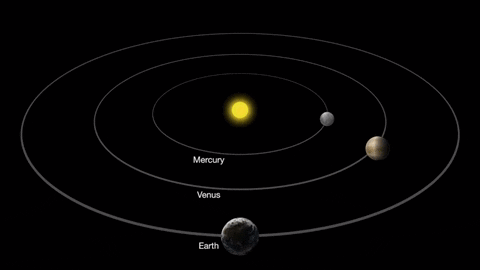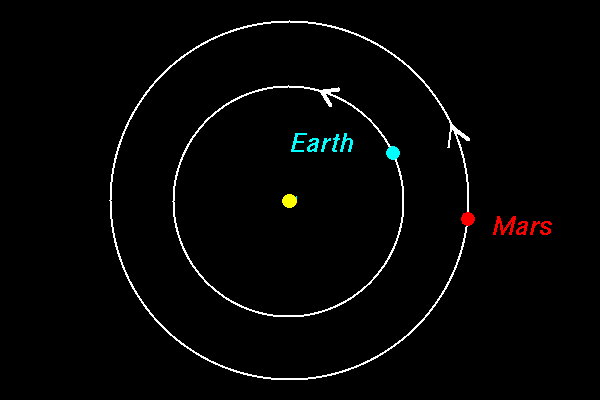Orbit and rotation
Mercury's highly eccentric, egg-shaped orbit takes the planet as close as 29 million miles (47 million kilometers) and as far as 43 million miles (70 million kilometers) from the Sun. It speeds around the Sun every 88 days, traveling through space at nearly 29 miles (47 kilometers) per second, faster than any other planet.
Mercury spins slowly on its axis and completes one rotation every 59 Earth days. But when Mercury is moving fastest in its elliptical orbit around the Sun (and it is closest to the Sun), each rotation is not accompanied by a sunrise and sunset like it is on most other planets.
The morning Sun appears to rise briefly, set and rise again from some parts of the planet's surface. The same thing happens in reverse at sunset for other parts of the surface. One Mercury solar day (one full day-night cycle) equals 176 Earth days—just over two years on Mercury.
Mercury spins nearly perfectly upright and so does not experience seasons like many other planets do.
48
198 reads
CURATED FROM
IDEAS CURATED BY
I'm passionate about helping people live their best lives. I'm a lifestyle coach & burnout coach.
The idea is part of this collection:
Learn more about health with this collection
Basic survival skills
How to prioritize needs in survival situations
How to adapt to extreme situations
Related collections
Similar ideas to Orbit and rotation
Orbit and rotation
Venus rotation and orbit are unusual in several ways, Venus is one of just two planets that rotate from east to west.
Only Venus and Uranus have this "backwards" rotation. It completes one rotation in 243 Earth days — the longest day of any planet in our solar system, even longer than a wh...
Orbit an rotation
As mars orbits the Sun, it completes one rotation every 24,6 hours, which is very similar to one day on Earth (23.9 hours). Martian days are called sols—short for "solar day." A year on Mars lasts 669.6 sols, which is the same as 687 Earth days.
Mars' axis of rotation is tilted 25 degrees w...
5 Need-to-Know Facts about MERCURY.
On mercury Daytime Temperatures can reach 430 degrees Celsius and drop to -180 degrees Celsius at night.
One day-night cycle on Mercury takes 175.97 Earth days and a year of Mercury is just 88 Earth days.
Standing on Mercury's surface at its closest approach to the Sun, our star woul...
Read & Learn
20x Faster
without
deepstash
with
deepstash
with
deepstash
Personalized microlearning
—
100+ Learning Journeys
—
Access to 200,000+ ideas
—
Access to the mobile app
—
Unlimited idea saving
—
—
Unlimited history
—
—
Unlimited listening to ideas
—
—
Downloading & offline access
—
—
Supercharge your mind with one idea per day
Enter your email and spend 1 minute every day to learn something new.
I agree to receive email updates


